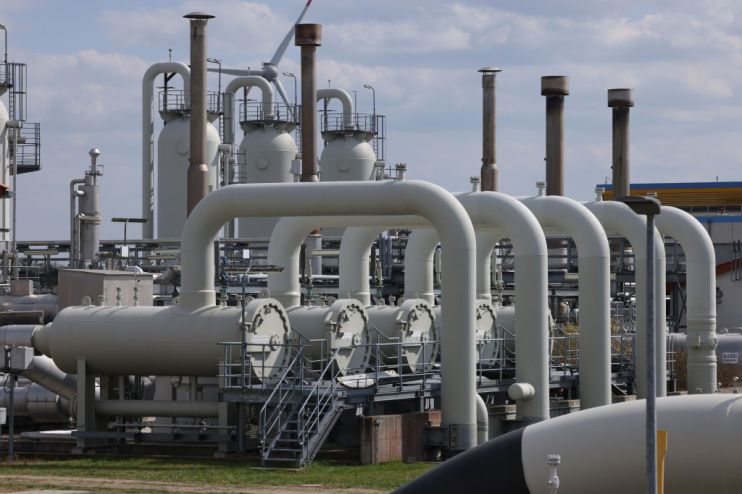Russian energy squeeze pushes Uniper to the brink

The German government could acquire a stake in troubled energy giant Uniper, as escalating economic tensions between the West and the Kremlin take their toll on European businesses.
Uniper has been in bailout talks with the Government since last week, after the utilities provider offered an alarming profits warning and withdrew its financial forecasts for the year.
The company is Germany’s biggest buyer of Russian gas, and been struggling this year amid surging gas prices and severe shortages from Russia.
Its share price has fallen 63 per cent since the beginning of the year – suggesting investor expectations of imminent state intervention.
Berlin is even considering enshrining rescue measures for companies such as Uniper into its energy security laws, according to news agency Reuters.
The Kremlin’s decision to cut pipeline gas to just 40 per cent of regular levels over the past few weeks has forced the company to seek gas supplies on the spot market – which is trading at historically high levels, well above prices agreed with Gazprom.
Analysts at the investment bank Credit Suisse told clients last week that Uniper was having to spend up to €40m daily in the gas market.
Tensions between Kremlin and West raise prospect of supply shut-off
The crisis at Uniper follows escalating economic tensions between the Kremlin and the West following Russia’s invasion of Ukraine,
Russia has already cut off gas flows into multiple European countries which refused to pay for supplies in roubles, a demand signed into law by Russian President Vladimir Putin in retaliation to EU sanctions: which now include both Kremlin-backed coal and seaborne oil shipments.
There are growing fears the Kremlin could completely suspend flows this week with the EU pushing for member states to top up gas storage to 80 per cent by October.
Storage levels across the bloc currently average 59 per cent – and are at 61 per cent in Germany.
The Nord Stream 1 pipeline is expected to close for maintenance on 11 July for ten days, raising the prospect that the pipeline will not be re-opened later this month.
Germany has already triggered the second of three stages for its emergency gas plan, which could eventually lead to the Government confiscating supplies and taking over this distribution.
However, the government is not yet planning to trigger a clause allowing gas companies to pass prices on to consumers – which is an option in the second stage.
Meanwhile, the head of Germany’s energy regulator has warned that the €15bn worth of credit lines provided by the government to buy gas for storage facilities may not be enough to fill up capacity this winter.
Bundesnetzagentur head Klaus Mueller told German magazine Wirtschaftswoche he feared the supply squeeze may push up prices even higher in the meantime.
He said: “The more the gas price rises, the more expensive it becomes to reach the statutory storage targets for October and November.”